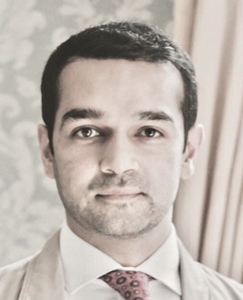
‘There are more things in heaven and earth, Horatio, than are dreamt of in your philosophy.’
The Tragedy of Hamlet, Prince of Denmark, Act I, Scene 5
Amongst the many interpretations that Shakespeare scholars have suggested of this celebrated Hamlet quote is that it relates to the limits of human knowledge and scientific enquiry to fully grasp the complexity of existence. It crosses my mind each time I read a primary care evidence update filled with summaries of clinical trials published in NEJM and The Lancet. Of course, these prestigious journals have historically published countless important studies that have transformed our understanding of medical science. Flicking through them on a weekly basis, though, one might struggle to find many that have the potential to change the work of frontline generalist doctors. The great Richard Lehman drew attention to this brilliantly in his own charming and gently mocking style when he wrote about them for many years in The BMJ. More importantly than their tendency to publish studies that are not relevant to the ‘real world’ of generalist practice, though, is that they collectively present an extremely narrow view of the knowledge that might help us to improve as medical professionals.
I argue then, that there are more studies in the scientific world worthy of doctors’ attention (Horatio) than are covered in conventional medical journals.
…much of the research that has the potential to inform and improve care, is no longer published in the ‘leading’ medical journals that are most easily recognised by, or regularly read by, doctors.
Academic primary healthcare is a relatively new discipline that has quickly made many important contributions to healthcare policy and practice. One of the features that has contributed to this success is that it has drawn on a wide range of expertise to conduct research that answers important and complex questions that matter to clinicians and patients. A quick scan of the staff list of any academic department of primary healthcare reveals scientists from a vast array of different disciplines, including sociology, psychology, anthropology, geography, statistics, economics, and many more. The richness that comes from this interdisciplinarity is undoubtedly what has helped to propel academic primary healthcare in the UK and globally. A notable consequence of it, though, is that much of the research that has the potential to inform and improve care, is no longer published in the ‘leading’ medical journals that are most easily recognised by, or regularly read by, doctors.
It was this mismatch that prompted me, a decade ago, to pitch the idea of Yonder to Roger Jones, then editor of the BJGP. Working at the time at the primary care research unit in Cambridge, I regularly saw colleagues publish excellent research in journals that I knew no doctor would likely ever read. By scanning these journals outside the medical mainstream and summarising research studies that I found interesting, I sought to bring some hidden gems to the attention of busy readers. More importantly than this, though, I wanted to celebrate and acknowledge the accomplishments of primary healthcare researchers whose work is generating important knowledge to improve our understanding of health and illness in a much broader way than medical research has done in the past.
In the last ten years, Yonder has appeared in 120 consecutive issues of the BJGP, and has been a great pleasure for me to write. For some years now, my academic work has moved away from primary healthcare research and into medical education. As a GP, though, I remain fascinated by, and grateful for, the excellent research that sheds light on all aspects of our work and the lives of our patients. As I hang up my pen, I take this opportunity to tip my hat to all those researchers whose work I’ve covered, and to thank the editorial staff at the BJGP and most importantly, all the generous readers who’ve followed the column over the years. Farewell.
Featured Photo by Greg Rakozy on Unsplash









It’s been a great ride Ahmed! Thanks for taking us along and best wishes for your future work.
I have loved your column over the last decade Ahmed. This last one in particular was so very moving. Hope you keep writing my friend!
Am in awe. Don’t suppose there are insights from #MedEd you’d care to share with the #BJGPLife readership? We’d love to stay in touch!